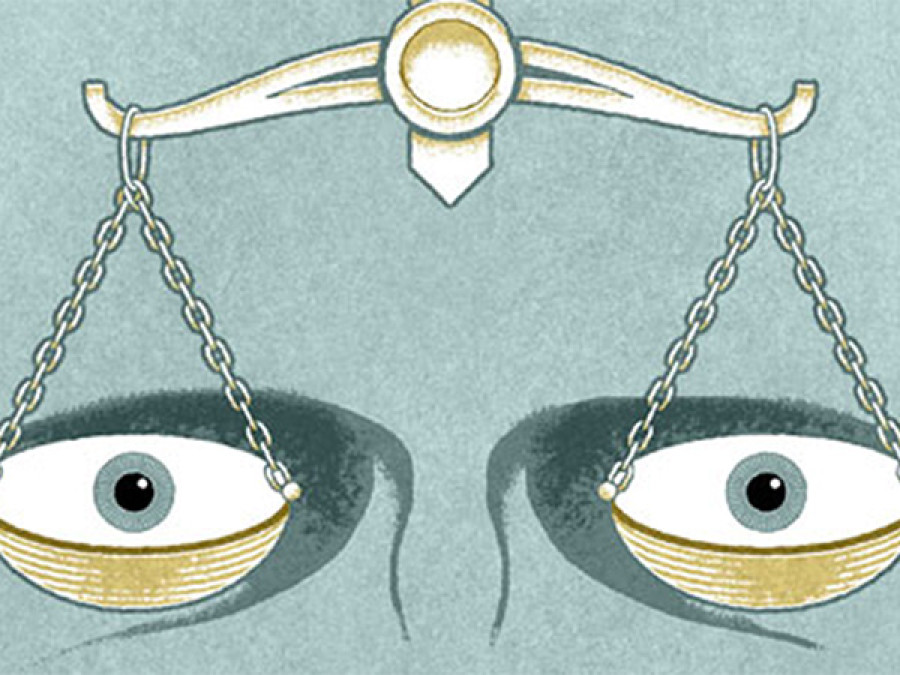Opinion
Out in the cold
Without a clear mandate and collaboration mechanisms, transitional justice commissions cannot provide healing.
Suman Adhikari
Transitional justice has been conceptualised as the healing of the trauma of human rights violations during conflict with four inseparable and complementary pillars—truth, justice, reparation, and institutional reform. The CPA committed to establishing truth, creating conditions for reconciliation, and ensuring an end to impunity. The government and political parties formed two transitional justice commissions to provide reconciliation, but the decade-long discussion has focused solely on amnesty and prosecution at the behest of political interests and powerful stakeholders. Transitional justice has never been discussed from the perspective of conflict victims; the most crucial stakeholders have never been asked what could actually constitute reconciliation and heal their trauma.
Victims are not dealt with as stakeholders, but are treated in a patronising manner. They are being asked to forget their trauma without an honest acknowledgement of what actually happened and genuine repentance. Nepal was established as a republic on the foundations of the suffering of victims, but the head of state, the prime minister, and the political parties have yet to publicly apologise for the suffering of civilians during the conflict. Reconciliation is being imposed—the victim and the perpetrator are made to embrace and provided some token relief, not realising that reconciliation that is not based on good faith
cannot be sustainable.
Criminal or transitional justice
Amidst the complex labyrinth of transitional justice, there are now arguments in favour of utilising the criminal justice system even in conflict-era cases. Fundamental differences notwithstanding, transitional justice is complementary to the criminal justice system in terms of powers related to justice and accountability. Truth commissions prioritise victims and their stories for effective remedy against the breach of fundamental rights, whereas the justice system prosecutes and punishes the guilty based on the evidence present; there is no attempt to adopt the sentiment of transitional justice. Even imprisoning a perpetrator for life does not necessarily mean justice and healing for victims. Along with accountability, the acceptance of a crime, dignity, recognition, and reparations are equally important for victims. Many victims have said that they would be satisfied if perpetrators of serious crimes repent their actions and go to prison for just 24 hours.
Political parties have made commitments that there will be no amnesty for serious human rights violations, but when it comes to particular cases, there are contradictions. There are different perceptions in terms of intention, definition, and categories of serious human rights violations and in some cases, double standards. Mere criminal justice or disguising and discharging the truth of serious violations by imposing reconciliation through politically-influenced commissions will not result in sustainable peace. What we are seeing now are superficial and one-sided debates favouring prosecution on the one hand or defending perpetrators under the rubric of immunity, on the other. These arguments deny obligations, accountability, and exclude the concerns of stakeholders. As such, they can never resolve the trauma of conflict and can even deepen mistrust among victims.
Losing confidence
The government established the Commission of Inquiry on Enforced Disappearance (CIED) and the Truth and Reconciliation Commission (TRC) on February 10, in between diverse expectations from different stakeholders, including the government, political parties, civil society, and conflict victims. But the victims have no confidence in the established commissions. We still have reservations on the transitional justice Act and the selection process for commissioners. Victims seek convincing commitments, will power, and competency from the commissions to ensure victim-centric transitional justice.
Transitional justice is a national agenda and hence, collaboration among all state mechanisms and stakeholders is indispensable. The truth commission should be a temporary, victim-centric, quasi-legal transitional justice mechanism established with a specific and limited mandate to reveal the truth and provide a certain level of healing to victims. Moreover, truth commissions should have the mandate to analyse causes, patterns, and the extent of violations, and make recommendations for appropriate measures on reparation, non-recurrence, and accountability.
Our established commissions need to have a clear goal, mandate, action plan, and collaboration mechanisms. Without these, the commissions will only be a futile expense of time and resources with no tangible outcome. The established commissions have already begun to lose the confidence of stakeholders. The government needs to review and reshuffle the commissions to regain confidence and ensure collaboration with stakeholders in the spirit of transitional justice. There should be clear mechanisms for collaboration and sharing of information, evidence of conflict-related cases, and expertise with the line ministries, the National Human Rights Commission, and national and international human rights institutions.
Truth and reparations
The ongoing debate on the definition and criteria of serious human rights violations must be settled. Clear criteria must be developed to distinguish conflict-era cases and politically-motivated ones. There must be clear procedures for reconciliation to ensure the voluntary consent of victims. Even in cases of amnesty, it is the right of victims to know the full truth behind who committed crimes and under what circumstances.
Furthermore, a comprehensive transitional justice package must be developed for reparations. This must take into account sustainable livelihood, memorialisation, and recognition of victims, non-recurrence, and an end to deep-rooted culture of impunity under political protection. Then, cases for amnesty and prosecution can be fairly distinguished. Serious crimes identified as non-reconcilable on the basis of evidence from the commissions, including cases currently at the courts, can then be dealt with by fast-tracking them to the Special Court and incorporating the components of transitional justice. Such actions must be taken before victims lose all confidence in the transitional justice commissions formed to provide them with justice.
Adhikari is chairperson of the Conflict Victims Common Platform




 17.12°C Kathmandu
17.12°C Kathmandu










